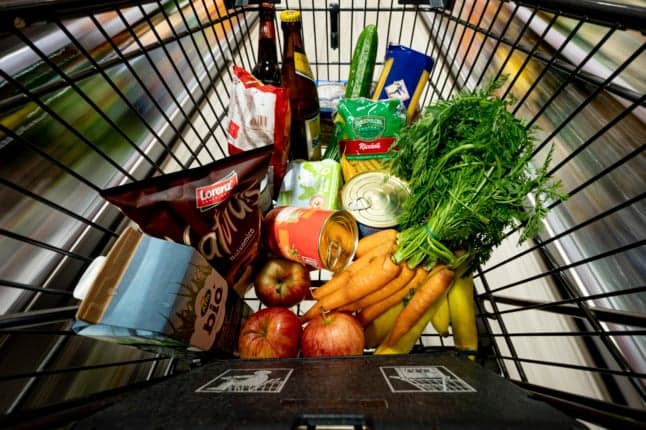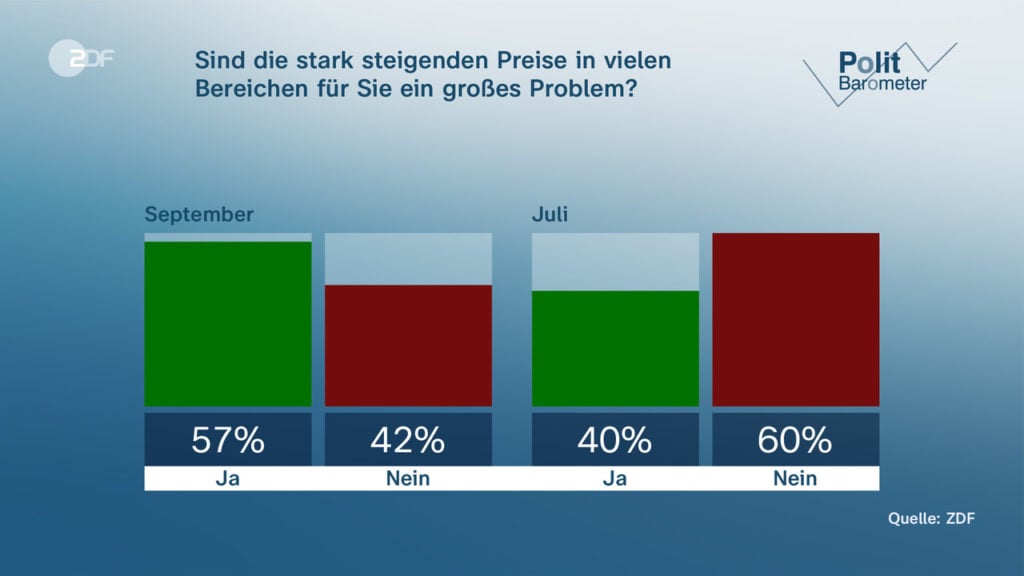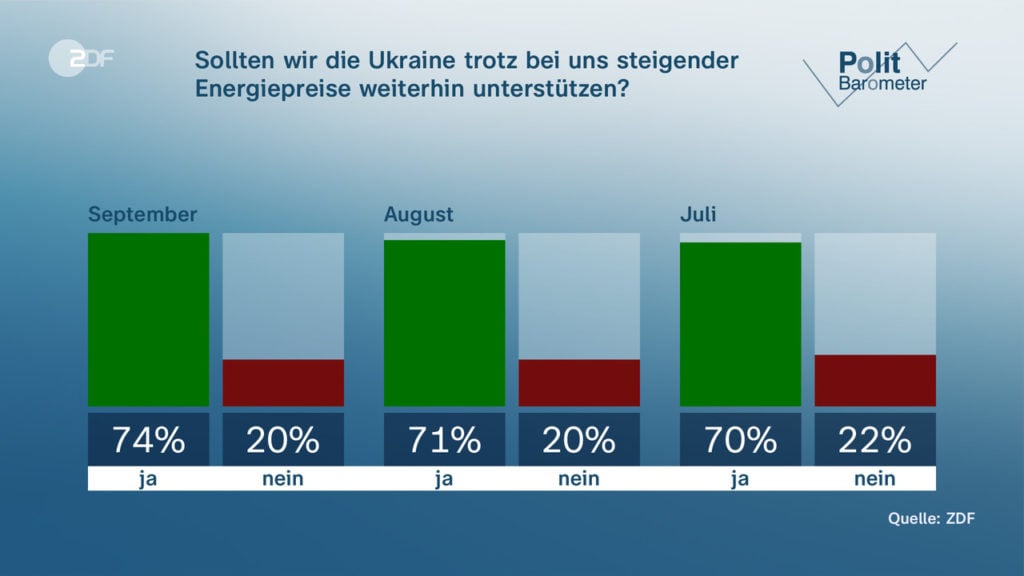How the cost of living crisis is affecting people in Germany

Energy and some supermarket items in Germany are rising in price much faster than the overall inflation rate - and that has more than half of German households worried about their budgets, a new survey shows.
What's happening?
With the cost of everyday items spiralling upwards, many people in Germany are feeling the strain. And a new survey has laid bare the impact on people.
Around 57 percent of people in Germany say rising prices are a “big problem” for them personally, according to a recent poll.
That’s a marked increase from July, when public broadcaster ZDF asked the same question and found that only 40 percent of respondents were concerned about rising costs at that time.
In some cases, energy prices have more than doubled.
The price of natural gas - which around half of German households use for heat - has quintupled in some cases.
READ ALSO: German households see record hikes in heating costs
What else is going up in price?
It’s not just the price of energy that's rising steeply. Anyone who has gone to buy groceries in the past months will have noticed a major increase.
One analysis from Focus news magazine found that the price of several common supermarket items had rocketed upwards once more, with many grocery stores and discount retailers having increased their prices on October 1st to adjust to higher costs on their end.
At a 65 percent increase, sugar saw one of the biggest price hikes. The price for a kilogram of powdered sugar specifically, doubled.
Butter biscuit prices - a common snack in Germany - are up 20 percent, while coffee cream and honey both increased by 30 percent.
The price of ketchup climbed by 50 percent.
Goose leg and goose breast - typical German delicacy for holidays like Christmas - doubled in price to over €20 in some Munich shops, due to higher feed and transport costs recently.

57 percent of Germans reported that price increases were becoming a "big problem" for them in September 2022. Poll by ZDF.
What does this mean for people?
Those increases are far above the German inflation rate. Currently sitting at around 7.9 percent, the country’s inflation rate has broken post-war records several times already this year.
But one study finds many Germans feel - and act - as if the rate is much higher.
According to an Internationale Hochscule study done exclusively for the Welt newspaper, the Inflationsgefühl - or what respondents feel the inflation rate is actually like - sits at 34 percent.
Just over half those surveyed in that study reported they were “very concerned” about rising prices. Meanwhile, 37 percent said they are "somewhat concerned".
Over 80 percent expect the problem to get worse.
Study authors say people in Germany may be overestimating the rate of inflation because the biggest increases are in areas they’ll tend to notice every day.
"We always perceive inflation where we have consumer spending," International Hochschule Business Administration Professor Johannes Trey told Welt. "People are interested in what they have to pay every day to meet their basic needs."
Most respondents say they’re planning on cutting spending in certain areas, with cuts in purchases for furniture, appliances, and travel the most popular cost saving measure. Around 80 percent say they’re making an effort to curb their electricity use.
READ ALSO: EXPLAINED: When should I turn on my heating in Germany this year?
Respondents are less likely to cut down on luxuries such as alcohol and tobacco—or media consumption like buying newspapers or streaming subscriptions.
Support for Ukraine still high despite price pressure
Although the financial stress people in Germany are experiencing has gone up, the general level of support for Ukraine among everyday Germans is still high - despite the war being one of the main causes of the record high inflation levels.
ZDF’s poll asked “should we keep supporting Ukraine even though it means higher prices for us?”
And 74 percent said “Yes” in September.
Although the upcoming winter is expected to come with even more financial strain, that number has trended slightly upward over the last three months.

Despite more than half of German households saying they're under financial stress, most say support for Ukraine should continue. Poll by ZDF.
Meanwhile, the federal government is currently preparing a new €200 billion package of support, on top of the €100 billion already passed by the Bundestag over the last few months.
The package is expected to provide inflation relief by introducing everything from a temporary cap on the price of gas to a successor to summer’s €9 nationwide public transport ticket.
READ ALSO: Germany to thrash out details of €200 billion energy support package
Comments
See Also
What's happening?
With the cost of everyday items spiralling upwards, many people in Germany are feeling the strain. And a new survey has laid bare the impact on people.
Around 57 percent of people in Germany say rising prices are a “big problem” for them personally, according to a recent poll.
That’s a marked increase from July, when public broadcaster ZDF asked the same question and found that only 40 percent of respondents were concerned about rising costs at that time.
In some cases, energy prices have more than doubled.
The price of natural gas - which around half of German households use for heat - has quintupled in some cases.
READ ALSO: German households see record hikes in heating costs
What else is going up in price?
It’s not just the price of energy that's rising steeply. Anyone who has gone to buy groceries in the past months will have noticed a major increase.
One analysis from Focus news magazine found that the price of several common supermarket items had rocketed upwards once more, with many grocery stores and discount retailers having increased their prices on October 1st to adjust to higher costs on their end.
At a 65 percent increase, sugar saw one of the biggest price hikes. The price for a kilogram of powdered sugar specifically, doubled.
Butter biscuit prices - a common snack in Germany - are up 20 percent, while coffee cream and honey both increased by 30 percent.
The price of ketchup climbed by 50 percent.
Goose leg and goose breast - typical German delicacy for holidays like Christmas - doubled in price to over €20 in some Munich shops, due to higher feed and transport costs recently.

What does this mean for people?
Those increases are far above the German inflation rate. Currently sitting at around 7.9 percent, the country’s inflation rate has broken post-war records several times already this year.
But one study finds many Germans feel - and act - as if the rate is much higher.
According to an Internationale Hochscule study done exclusively for the Welt newspaper, the Inflationsgefühl - or what respondents feel the inflation rate is actually like - sits at 34 percent.
Just over half those surveyed in that study reported they were “very concerned” about rising prices. Meanwhile, 37 percent said they are "somewhat concerned".
Over 80 percent expect the problem to get worse.
Study authors say people in Germany may be overestimating the rate of inflation because the biggest increases are in areas they’ll tend to notice every day.
"We always perceive inflation where we have consumer spending," International Hochschule Business Administration Professor Johannes Trey told Welt. "People are interested in what they have to pay every day to meet their basic needs."
Most respondents say they’re planning on cutting spending in certain areas, with cuts in purchases for furniture, appliances, and travel the most popular cost saving measure. Around 80 percent say they’re making an effort to curb their electricity use.
READ ALSO: EXPLAINED: When should I turn on my heating in Germany this year?
Respondents are less likely to cut down on luxuries such as alcohol and tobacco—or media consumption like buying newspapers or streaming subscriptions.
Support for Ukraine still high despite price pressure
Although the financial stress people in Germany are experiencing has gone up, the general level of support for Ukraine among everyday Germans is still high - despite the war being one of the main causes of the record high inflation levels.
ZDF’s poll asked “should we keep supporting Ukraine even though it means higher prices for us?”
And 74 percent said “Yes” in September.
Although the upcoming winter is expected to come with even more financial strain, that number has trended slightly upward over the last three months.

Meanwhile, the federal government is currently preparing a new €200 billion package of support, on top of the €100 billion already passed by the Bundestag over the last few months.
The package is expected to provide inflation relief by introducing everything from a temporary cap on the price of gas to a successor to summer’s €9 nationwide public transport ticket.
READ ALSO: Germany to thrash out details of €200 billion energy support package
Join the conversation in our comments section below. Share your own views and experience and if you have a question or suggestion for our journalists then email us at [email protected].
Please keep comments civil, constructive and on topic – and make sure to read our terms of use before getting involved.
Please log in here to leave a comment.